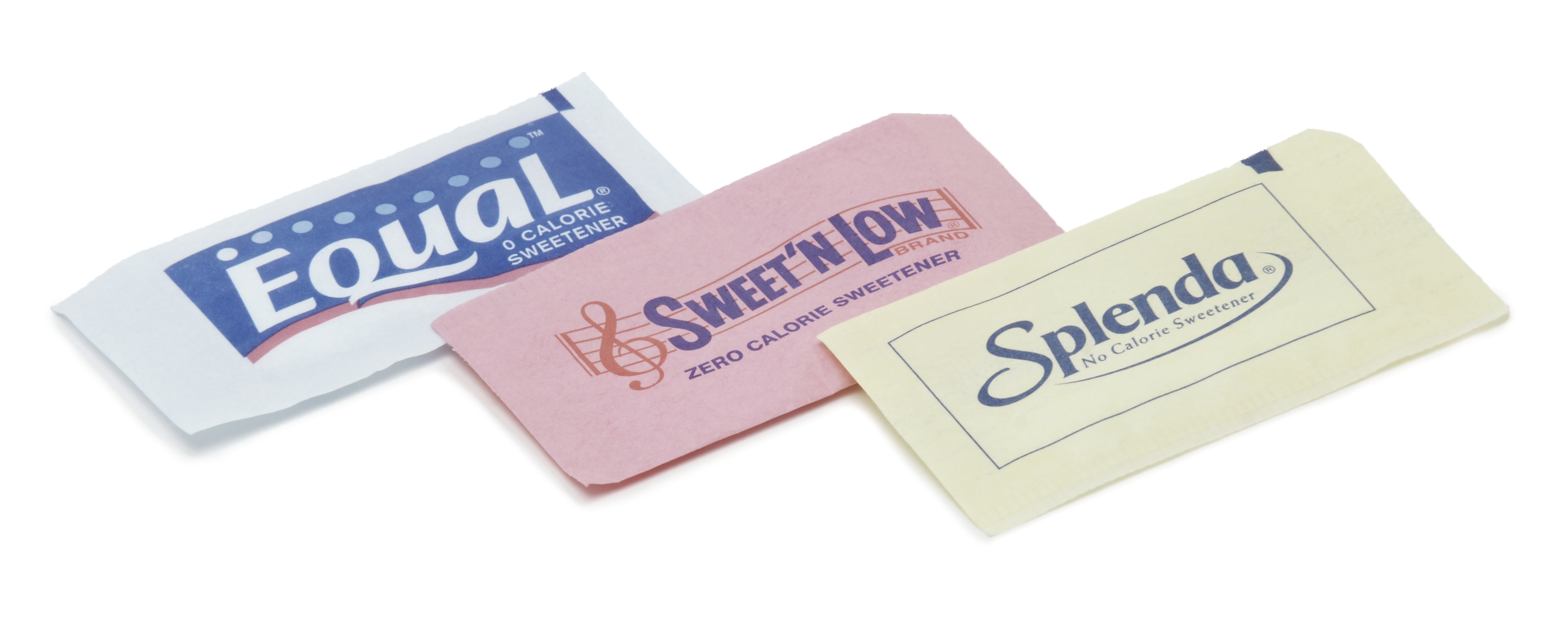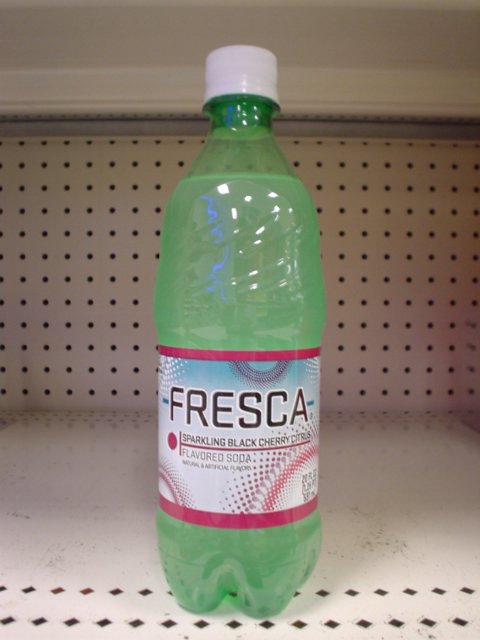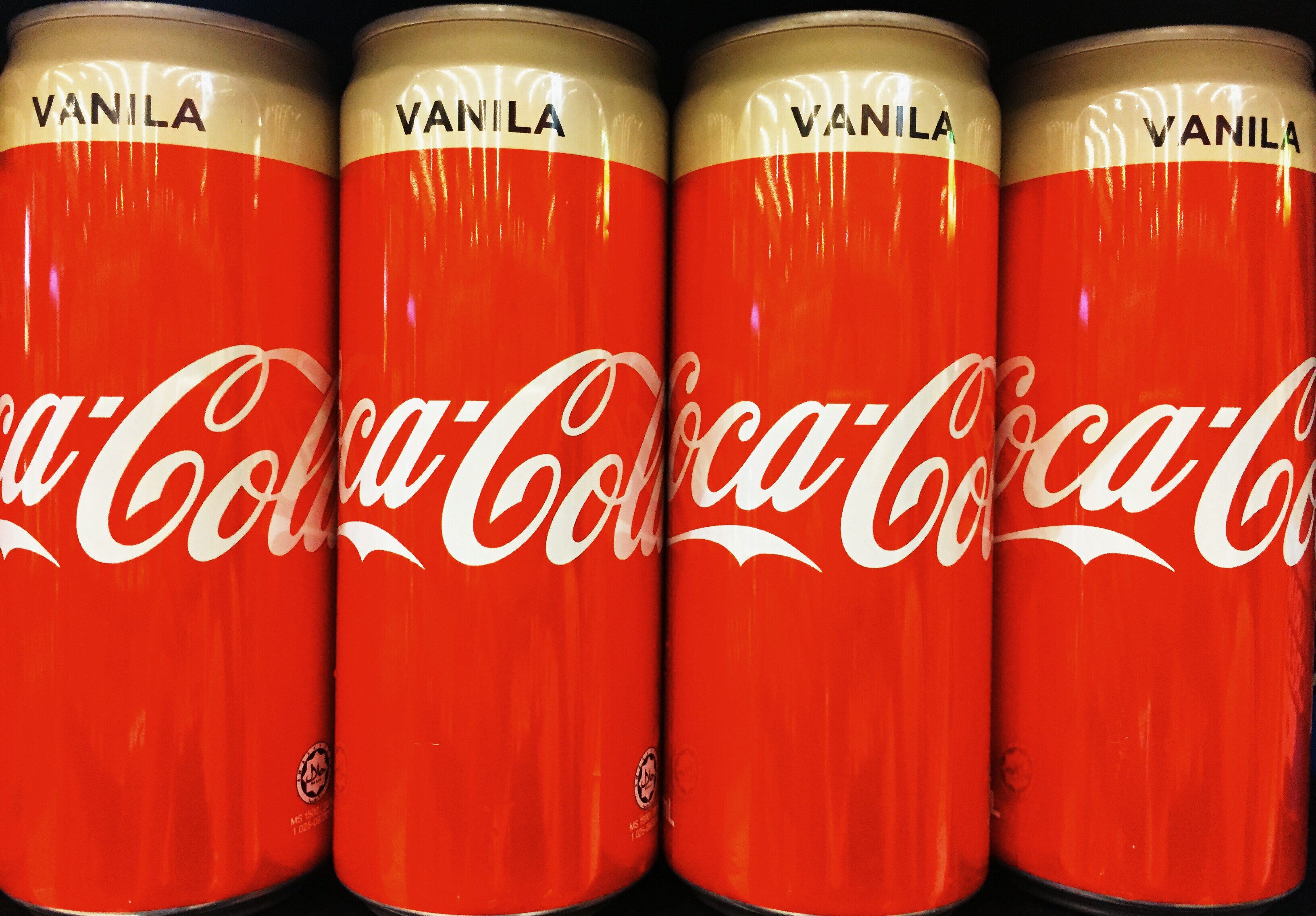|
Diet Soda
Diet or light beverages (also marketed as sugar-free, zero-calorie, low-calorie, zero-sugar or zero) are generally sugar-free, artificially sweetened beverages with few or no calories. They are marketed for diabetics and other people who want to reduce their sugar intake. History Though artificial sweeteners had been known since the discovery of saccharin in 1878, the diet beverage era began in earnest with the 1949 launch of La Casera (also known as Gaseosa) in Madrid, Spain using cyclamate. The product, which belongs now to Suntory Beverage and Food Europe (SBFE), is still in market. This was followed by the development of No-Cal ginger ale in 1952. Hyman and Morris Kirsch of Kirsch Beverages (Brooklyn, New York) formulated No-Cal for diabetic and otherwise sugar-restricted hospital patients, also using cyclamate calcium to replace the sugar. Recognizing Americans' growing desire for weight loss, Kirsch began marketing No-Cal to the general public, particularly to women. By ... [...More Info...] [...Related Items...] OR: [Wikipedia] [Google] [Baidu] |
Artificial Sweetener
A sugar substitute is a food additive that provides a sweetness like that of sugar while containing significantly less food energy than sugar-based sweeteners, making it a zero-calorie () or low-calorie sweetener. Artificial sweeteners may be derived through manufacturing of plant extracts or processed by chemical synthesis. Sugar substitute products are commercially available in various forms, such as small pills, powders, and packets. In North America, common sugar substitutes include aspartame, monk fruit extract, saccharin, sucralose, and stevia; cyclamate is also used outside the United States. These sweeteners are a fundamental ingredient in diet drinks to sweeten them without adding calories. Additionally, sugar alcohols such as erythritol, xylitol, and sorbitol are derived from sugars. Approved artificial sweeteners do not cause cancer. Reviews and dietetic professionals have concluded that moderate use of non-nutritive sweeteners as a safe replacement for s ... [...More Info...] [...Related Items...] OR: [Wikipedia] [Google] [Baidu] |
Fresca
Fresca is a grapefruit-flavored citrus soft drink created by The Coca-Cola Company. Borrowing the word ''Fresca'' (meaning "fresh") from Italian, Spanish and Portuguese, it was introduced in the United States in 1966. Originally a bottled sugar-free diet soda, sugar sweetened versions were introduced in some markets. Currently, Fresca has been rebranded as "Fresca Sparkling Soda Water", reformulated in four flavors – Grapefruit Citrus, Black Cherry Citrus, Peach Citrus and Blackberry Citrus – and described as "The original no sugar, no calorie sparkling beverage". In the US, Fresca is currently sold in plastic bottles and aluminum cans. History Trademarks According to the United States Patent Office, "Fresca" was first trademarked by The Coca-Cola Company in July 1962 as a trade name for "frozen concentrated orange juice" and "frozen concentrated tangerine juice". The company also applied for a trademark for "Fresca" in 1962 as a "Non-alcoholic Maltless Soft Drinks and the ... [...More Info...] [...Related Items...] OR: [Wikipedia] [Google] [Baidu] |
Aspartame
Aspartame is an artificial non- saccharide sweetener 200 times sweeter than sucrose and is commonly used as a sugar substitute in foods and beverages. It is a methyl ester of the aspartic acid/phenylalanine dipeptide with the trade names ''NutraSweet'', ''Equal'', and ''Canderel''. First submitted for approval as a food ingredient in 1974, aspartame was approved by the US Food and Drug Administration (FDA) in 1981. Aspartame is one of the most rigorously tested food ingredients. Reviews by over 100 governmental regulatory bodies found the ingredient safe for consumption at current levels.Food Standards Australia New Zealand: , several reviews of clinical trials showed that using aspartame in place of sugar reduces calorie intake and body weight in adults and children. Uses Aspartame is around 180 to 200 times sweeter than sucrose (table sugar). Due to this property, even though aspartame produces of energy per gram when metabolized, the quantity of asparta ... [...More Info...] [...Related Items...] OR: [Wikipedia] [Google] [Baidu] |
Diet Coke Products
Diet may refer to: Food * Diet (nutrition), the sum of the food consumed by an organism or group * Dieting, the deliberate selection of food to control body weight or nutrient intake ** Diet food, foods that aid in creating a diet for weight loss or gain * Healthy diet, the process of helping to maintain or improve overall health Politics * Diet (assembly), a formal deliberative assembly Current * National Diet, Japan's bicameral legislature, in its current form since 1947, composed of the House of Representatives and the House of Councillors * Landtag, a diet of states and provinces in Germany, Austria, South Tyrol in Italy, and the national parliament of Liechtenstein * Bundestag (''Deutscher Bundestag''), the lower house of Germany's Parliament, established in West Germany in 1949, and all of Germany in 1990 Historical * Diet of Finland, the legislative assembly of the Grand Duchy of Finland from 1809 to 1906 * Diet of Hungary, the legislative assembly of the Kingdom of ... [...More Info...] [...Related Items...] OR: [Wikipedia] [Google] [Baidu] |
Phytochemical
Phytochemicals are chemical compounds produced by plants, generally to help them resist fungi, bacteria and plant virus infections, and also consumption by insects and other animals. The name comes . Some phytochemicals have been used as poisons and others as traditional medicine. As a term, ''phytochemicals'' is generally used to describe plant compounds that are under research with unestablished effects on health, and are not scientifically defined as essential nutrients. Regulatory agencies governing food labeling in Europe and the United States have provided guidance for industry to limit or prevent health claims about phytochemicals on food product or nutrition labels. Definition Phytochemicals are chemicals of plant origin. Phytochemicals (from Greek ''phyto'', meaning "plant") are chemicals produced by plants through primary or secondary metabolism. They generally have biological activity in the plant host and play a role in plant growth or defense against competitors, ... [...More Info...] [...Related Items...] OR: [Wikipedia] [Google] [Baidu] |
Stevia
Stevia () is a natural sweetener and sugar substitute derived from the leaves of the plant species ''Stevia rebaudiana'', native to Paraguay and Brazil. The active compounds are steviol glycosides (mainly stevioside and rebaudioside), which have about 50 to 300 times the sweetness of sugar, are heat-stable, pH-stable, and not fermentable. The human body does not metabolize the glycosides in stevia, so it contains zero calories as a non-nutritive sweetener. Stevia's taste has a slower onset and longer duration than that of sugar, and at high concentrations some of its extracts may have an aftertaste described as licorice-like or bitter. Stevia is used in sugar- and calorie-reduced food and beverage products as an alternative for variants with sugar. The legal status of stevia as a food additive or dietary supplement varies from country to country. In the United States, high-purity ''stevia glycoside'' extracts have been generally recognized as safe (GRAS) since ... [...More Info...] [...Related Items...] OR: [Wikipedia] [Google] [Baidu] |
Sucralose
Sucralose is an artificial sweetener and sugar substitute. The majority of ingested sucralose is not broken down by the body, so it is noncaloric. In the European Union, it is also known under the E number E955. It is produced by chlorination of sucrose, selectively replacing three of the hydroxy groups in the C1, C4, and C6 positions to give a 1,6-dichloro-1,6-dideoxyfructose– 4-chloro-4-deoxygalactose disaccharide. Sucralose is about 320 to 1,000 times sweeter than sucrose,Michael A. Friedman, Lead Deputy Commissioner for the FDAFood Additives Permitted for Direct Addition to Food for Human Consumption; SucraloseFederal Register: 21 CFR Part 172, Docket No. 87F-0086, 3 April 1998 three times as sweet as both aspartame and acesulfame potassium, and twice as sweet as sodium saccharin. While sucralose is largely considered shelf-stable and safe for use at elevated temperatures (such as in baked goods), there is some evidence that it begins to break down at temperatures ab ... [...More Info...] [...Related Items...] OR: [Wikipedia] [Google] [Baidu] |
Aspartame
Aspartame is an artificial non- saccharide sweetener 200 times sweeter than sucrose and is commonly used as a sugar substitute in foods and beverages. It is a methyl ester of the aspartic acid/phenylalanine dipeptide with the trade names ''NutraSweet'', ''Equal'', and ''Canderel''. First submitted for approval as a food ingredient in 1974, aspartame was approved by the US Food and Drug Administration (FDA) in 1981. Aspartame is one of the most rigorously tested food ingredients. Reviews by over 100 governmental regulatory bodies found the ingredient safe for consumption at current levels.Food Standards Australia New Zealand: , several reviews of clinical trials showed that using aspartame in place of sugar reduces calorie intake and body weight in adults and children. Uses Aspartame is around 180 to 200 times sweeter than sucrose (table sugar). Due to this property, even though aspartame produces of energy per gram when metabolized, the quantity of asparta ... [...More Info...] [...Related Items...] OR: [Wikipedia] [Google] [Baidu] |
Diet Pepsi Vanilla
PepsiCo has produced a number of variations on its primary cola, Pepsi, over the years, including the following: Regular Varieties North America Europe Japan *Pepsi Carnival: A tropical fruit-flavored Pepsi available in Japan for a limited time that debuted in summer 2006. The same concept was later released as Pepsi Summer Mix in 2007 in the US, although the formula was most likely different. *Pepsi Red and Gold: Released alongside each other in November 2006, Red had a ginger flavor that was somewhat spicy, while Gold's flavor was more a mild ginger taste. *Pepsi Ice Cucumber: Limited edition green, cucumber-flavored Pepsi sold in summer 2007. *Pepsi Blue Hawaii: A summer 2008 limited edition, pineapple and lemon-flavored Pepsi, blue in color. *Pepsi White: Limited edition Pepsi with yogurt flavor, sold in winter 2008. It was released again for a limited time in winter 2012 with a mandarin orange flavor. Another variant called White Cola Pepsi was released in 2015, w ... [...More Info...] [...Related Items...] OR: [Wikipedia] [Google] [Baidu] |
Diet Vanilla Coke
Coca-Cola Vanilla (commonly referred to as Vanilla Coke) is a vanilla-flavored version of Coca-Cola, invented by Contra and introduced in 2002 but subsequently discontinued in North America and the United Kingdom in 2005, only remaining available as a fountain drink. It was relaunched in the US in 2007, in Denmark in 2012, the UK in 2013, and Canada in 2016. Vanilla Coke has been available in Australia since its initial introduction in 2002, being produced by Coca-Cola Amatil. Originally announced as a limited edition in the UK, it became permanent for several years; however, it was again discontinued in the UK in Summer 2018. Despite this, the product has still been distributed in related brands Diet Vanilla Coke and Coke Vanilla Zero. In 2003, Pepsi introduced Pepsi Vanilla to compete with Vanilla Coke. Virgin released their own vanilla cola in 2002 in the UK, the year before Coke released Vanilla Coke there. Development Ordinary Coca-Cola already contains small amounts ... [...More Info...] [...Related Items...] OR: [Wikipedia] [Google] [Baidu] |
Vanilla
Vanilla is a spice derived from orchids of the genus ''Vanilla (genus), Vanilla'', primarily obtained from pods of the Mexican species, flat-leaved vanilla (''Vanilla planifolia, V. planifolia''). Pollination is required to make the plants produce the fruit from which the vanilla spice is obtained. In 1837, Belgian botanist Charles François Antoine Morren discovered this fact and pioneered a method of artificially pollinating the plant. The method proved financially unworkable and was not deployed commercially. In 1841, Edmond Albius, a 12-year-old enslaved child who lived on the French island of Réunion in the Indian Ocean, discovered that the plant could be hand-pollination, hand-pollinated. Hand-pollination allowed global cultivation of the plant. Noted French botanist and plant collector Jean Michel Claude Richard falsely claimed to have discovered the technique three or four years earlier. By the end of the 20th century, Albius was considered the true discoverer ... [...More Info...] [...Related Items...] OR: [Wikipedia] [Google] [Baidu] |







.jpg)